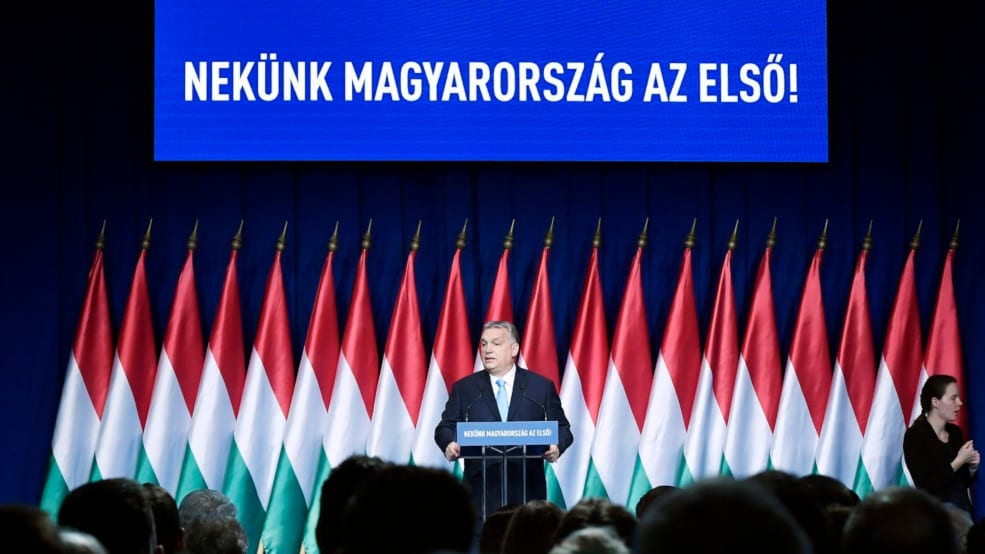
All you need to know about the latest in Hungary’s pro-family policy
2019. 02. 19.
In his recent State of the Nation speech, Prime Minister Orbán announced seven, new points that would expand the government’s family support policy, a bold set of measures aimed at correcting Hungary’s demographic course. While birth numbers are declining all over Europe, Hungary is pursuing an alternative path to reverse the negative trends, one that does not rely on immigration. Here are the details.
As the reader knows, a fertility rate of 2.1 is required for a society to maintain its population at a stable level. Today, the average fertility rate among EU countries stands at 1.6, while Hungarian statistics in recent years show it at 1.49 – that’s an increase from 1.25 in 2010 but still low. These bleak figures raise the very real prospect that languages and cultures could die out.
Some countries respond to this problem by relying on immigration to fill the labor force and plug the holes in the demographic dyke. The government of Prime Minister Orbán has chosen a different approach, one that supports stronger families and eases the financial burdens on those parents who would like to have more children.
Here are the details of the new, seven points of the family support package:
1. Interest-free, all-purpose loan: Every woman between the ages of 18 and 40 years living in her first marriage and in employment for a minimum of three years will be eligible for an interest-free, all-purpose loan up to 10 million HUF. This option will remain open for three years from July 2019. Following the birth of a first child, the repayment of the loan will be suspended for three years. If a second child is born, 30 percent of the debt will be cancelled and the repayment suspended for another three years. If she has a third child, the whole debt will be forgiven.
2. Extension of CSOK: Hungary’s family home ownership subsidy program, also known by its Hungarian acronym CSOK, will be expanded to include used homes as eligible for the financial subsidy (previously only newly built homes were eligible). Under the current scheme, families with two and three children are eligible for a grant of 10 and 15 million HUF, respectively, toward the purchase of a home. Also, the government will also abolish one of the previous conditions, which said that the value of the home must not exceed 35 million HUF.
3. Mortgage deductions: The government will deduct 1 million HUF from the mortgages of young, married couples after the birth of a second child and 4 million for the third child. If the couple has more children, they will receive an additional deduction of 1 million HUF for each additional child. This option will be available for the so-called CSOK loans (low-interest CSOK loans are also available in addition to the grants mentioned above).
4. Exemption from personal income tax: Women who have given birth to at least four children will be granted life-long exemption from personal income tax liability on income derived from work. The exemption will be granted not only for kids under the age of 18 but also for adult children.
5. Car purchase program: Families with three children or more can now apply for a 2.5 million HUF, non-repayable grant toward the purchase of a new, 7-seater car. The 2.5 million HUF grant should not exceed 50 percent of the vehicle’s price.
6. 21,000 more nursery places: The government will provide complete creche coverage through the construction of 21,000 nursery places over the next three years. The currently available 50,000 places will be expanded by 10,000 over the next year and reach the required 70,000 by 2022.
7. Childcare allowance for grandparents: Once the necessary legislation has been implemented, Hungarian grandparents who are still active on the labor market will be eligible for childcare allowance.